This audio recording is part of the World Bank/IMF Spring Meetings 2025 special episode of the Foresight Africa podcast. Listen to the full episode, which includes interviews with six other speakers on site at the event.
Landry Signé, senior fellow in the Global Economy and Development program and the Africa Growth Initiative at the Brookings Institution and host of the Foresight Africa Podcast, engages with distinguished leaders in policy, business, academia, and civil society who share their unique insights and innovative solutions to Africa’s most complex challenges while highlighting the continent’s opportunities to advance impactful engagement between Africa, the U.S., and the global community. During the IMF/World Bank Spring Meetings in Washington, D.C., Signé spoke with high-level officials about their takeaways from the meetings and the impact and potential that international cooperation can have on the global economy.
In this interview, he speaks with Claver Gatete, executive secretary of the United Nations Economic Commission for Africa. He has held previously held positions of ambassador and permanent representative of Rwanda to the United Nations and governor of the National Bank of Rwanda. He also served in the Rwandan government as minister of infrastructure and as minister of finance and economic planning.
Transcript
GATETE: My name is Claver Gatete. I’m the executive secretary of the United Nations Economic Commission for Africa.
SIGNÉ: So thank you so much for joining us today, Excellency. And my first question, what are your key takeaways from the 2025 Spring Meetings?
GATETE: As usual, the Spring Meetings, the annual meetings, is a gathering where we come and exchange ideas on the current status of the global economy. And that global economy, of course, includes Africa. And this time we are we are meeting at a very challenging time where, as you must have heard or seen, where the debt levels have gone way beyond the normal. Now has passed 1 trillion for the African countries, the same African countries which are now facing very difficult situation in terms of accessing concessional resources. They are stressed. And with climate change affecting the African countries, almost 5% of their GDP and going up now.
It’s a very tough situation. It’s a really tough situation where we exchange ideas in this kind of environment. What next? What should happen? And we’re always happy to come here in Washington to exchange with the IMF. That is almost a global regulator, that is looking at the growth and the key constraints and the facilities that can help member countries to stabilize, especially the balance of payments, but also in terms of development. And also the World Bank, which has a big role in terms of financing not only the global economy but also specifically the African programs. We work together with them directly in terms of harmonizing our programs because they’re in development. And also, we are the economic organization on the African continent that works with all the 54 countries.
So when we come here, we also come to share our own experiences. We’ve seen that with the aid declining, with the debt levels being very high, and the need for more resources for climate, we need to do things differently. And one of them is the really focusing on the domestic resource mobilization, which we discussed at length with the managing director of the IMF and also other participants, especially the African countries.
We all need to do look internally and say what we need to do differently. The capacity that you need to develop the whole administration for for taxation, the whole digitization of the whole economy so that you can be able to make sure that everybody pays their dues, and also to seal all the loopholes for the least financial flows. And also how do we build the capacity for the capital market? That’s where a private sector gets long-term resources, you know, cheaply, relatively.
So, there are things that we are not doing right because our tax-to-GDP ratio is currently at 15.6%, which is quite low by any standards. What we are saying is what can we do differently to really make sure that we can increase this amount?
Secondly, how do we build our own market? We have an African market, the African Continental Free Trade Area, and we have the whole African Union Commission has laid out exactly what needs to be done in terms of the infrastructure, in terms energy, in terms logistics, in term of technology, and everything else. How do we get it done so that we can trade among ourselves as Africans and then be able to increase our own trade? But also add value. It’s not just trading, just raw materials, or just unfinished products. We want to make sure that we can add value.
And what we are also at the Economic Commission for Africa, what we’re proposing is the regional value chains—94 regional value chains have been proposed in all areas from minerals to agriculture to livestock to other areas. And we are saying how do we bring in the private sector? Because the public sector alone is not enough. We need the private sector to come in. And for them to come in definitely we need to address the issues of de-risking. Because all these instruments they have in IFC [International Finance Corporation] in the IDA [International Development Association], in the World Bank, the MIGA [Multilateral Investment Guarantee Agency], and others, they should be able to come to the continent to help to de-risk these kind of projects so that private sector can invest their own resources, and add value at every level to make sure that this time we don’t have to export and process the minerals or other products, and we want to make that sure that also we play by the international standards.
So the focus on that market of the African Continental Free Trade Area, and the issues of taxation, which are very, very important, the building of the capital market, improving our credit rating so that we can be able to mobilize long-term resources which are very cheap in nature because of our credit ratings is very very critical. And that’s what we are focusing on, among so many others. Yes, we help in terms of planning, in terms of macroeconomic management, but also the key thing is how do we develop our own capacity to be able to generate our own resources and also be rated to make sure that we can attract private resources beyond the resources from IDA or from other institutions which are long-term, but which are not sufficient?
SIGNÉ: Fantastic, Excellency! How might the 2025 Spring Meetings shape policy discussions and deliver tangible results across Africa moving forward?
GATETE: Spring Meetings brings together all the experts, all the decisionmakers. Here you have the ministers, you have financial institutions, you have think tanks, you have academia, you have everybody. For example, one of the panel that I was moderating of a team that was put together by the secretary-general to look at the debt and what needs to be done. As you know that debt has had a lot of challenges because right now for the countries which are highly indebted, it started with the COVID where people were just borrowing to save lives.
And now there are many other issues that came in, including the war in Ukraine, that exacerbated the whole situation. And then later on, of course, the the, you know, the situation kept getting worse to where we are now. But we need to address it. We no longer have the Paris Club that we used to have, because most of the money is not owed to the Paris Club members. There are non-Paris Club members. And now we are saying, how do we bring all the other groupings together that are raining money? And I’m talking about the countries plus the private sector. How do you bring them together in a room to discuss about how to restructure the debt? Which is quite very complicated in this current kind of geopolitical situation. And that’s what we are discussing to see what do we need to do to make sure that we address those issues.
So, when I was moderating with those ones, with the experts, then the experts were telling us exactly what are possible and also the political will that needs to play to make sure that we can address some of the issues which are affecting almost every country. So that’s just one of them.
But we had a discussion together with the managing director and the other ministers and all that, discussing really what is happening everywhere and getting that knowledge and also sharing experience on what is happening in each of the continents and the solutions that are being proposed.
For example, if you take climate and you are talking about carbon credit market, what is happening in that in that kind of area? What are the innovative financing mechanisms? Like the blue bond, the green bonds, the sustainability-linked bonds. Those are the examples of what is happening, is who is doing what in which country, how successful has this one been, how do you do the swaps? For climate, how do we do the swaps? I’m saying the debt swaps. How do you do it also for education and so forth? Who has done it? What is the experience?
So this is the place where you come together and be able to exchange with others. There are many sessions going on. You pick and choose what you think is more relevant, but I think it’s a good area where we come together, and be able to discuss what is happening at this moment in time, especially the issues of tariffs and other things which are happening, of which ECA [Economic Commission for Africa] has done a comprehensive study on this one here and the impact it is having on Africa and what are the alternatives.
SIGNÉ: Fantastic! Thank you so much, Excellency, that is incredibly wonderful.
-
Acknowledgements and disclosures
The Foresight Africa podcast is brought to you by the Brookings Podcast Network. Send your feedback and questions to podcasts at Brookings dot edu. My special thanks to the production team including Fred Dews, producer; Nichole Grossman, Dafe Oputu, and Nicole Ntungire, associate producers; Gastón Reboredo, audio engineer; and Izzy Taylor, senior communications coordinator in Brookings Global. The show’s art was designed by Shavanthi Mendis. Additional promotional support for this podcast comes from my colleagues in Brookings Global and the Office of Communications at Brookings.
The Brookings Institution is committed to quality, independence, and impact.
We are supported by a diverse array of funders. In line with our values and policies, each Brookings publication represents the sole views of its author(s).
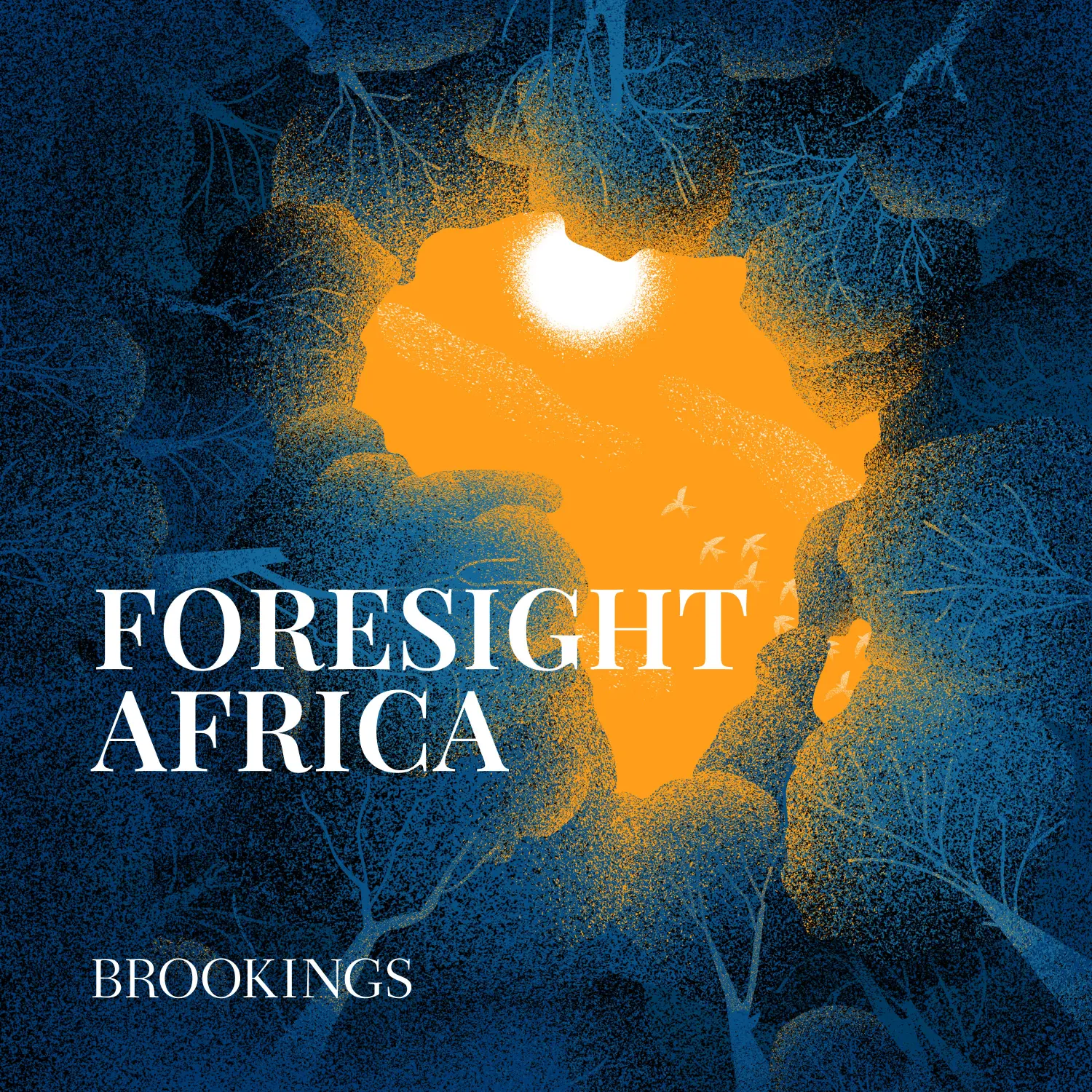

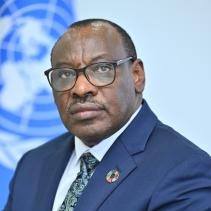
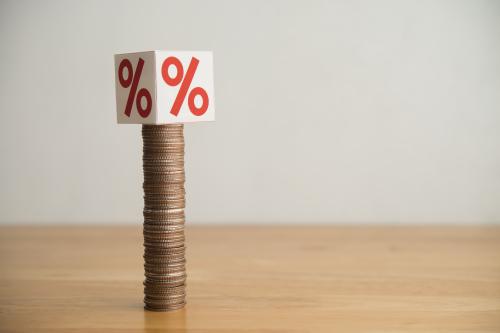
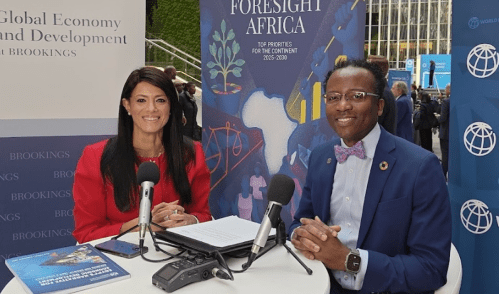
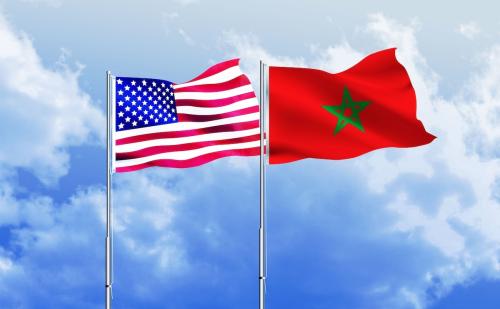
Commentary
Claver Gatete on Africa’s debt and growth opportunities
Foresight Africa podcast at the 2025 World Bank/IMF Spring Meetings
May 1, 2025